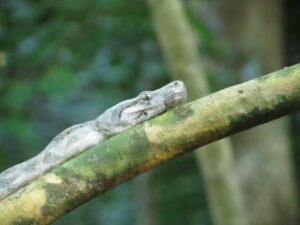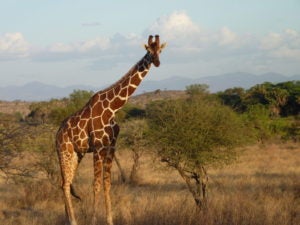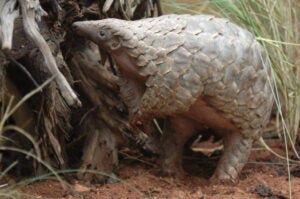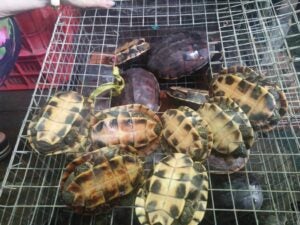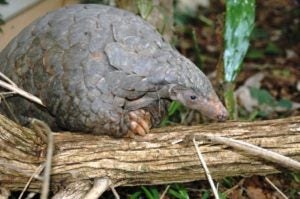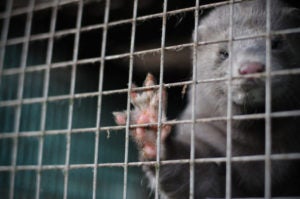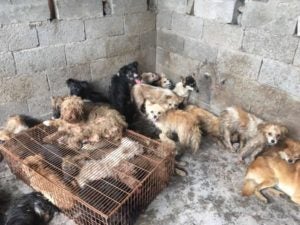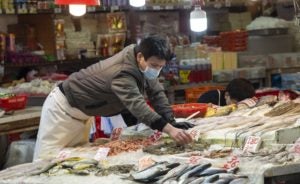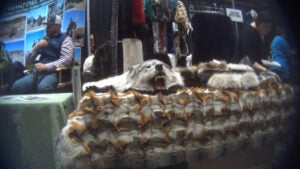
CAPE TOWN—South Africa represents the biggest percentage of hunting outfitter exhibitors at the Dallas Safari Club (DSC) annual convention. The DSC, a Texas-based trophy hunting industry organisation, hosts the USA’s biggest industry hunting event, which is being held online this year.
Based on research conducted by both Humane Society International (HSI) and the Humane Society of the United States (HSUS), hunting outfitters at this event are collectively offering hunting trips to kill at least 319 types of mammals across 70 countries.
Of the 306 outfitter exhibitors, 104 offer hunts in South Africa—making South Africa top the list at 29% of all exhibitors, followed by Canada (16%) and the US (10%).
“As it is, South Africa is one of the world’s largest exporters of hunting trophies—hardly a record of which to be proud. Far more beneficial to conservation and the country’s economy on a sustainable basis is the promotion of wildlife watching—not killing sprees for a privileged few,” said HSI-Africa wildlife director, Audrey Delsink.
DSC gained prominent attention when it auctioned off hunts of a critically endangered black rhino in Namibia in 2014 and 2016.
“Given the recent revelation that rhino numbers have dropped so dramatically in the Kruger National Park—and with most rhinos in the country and the continent facing a similar poaching pandemic—it’s all the more disgraceful that rhinos have targets on their heads by hunting outfitters,” added Delsink.
Conservation: lip service
Among the 153 international auction items at this year’s event, 75 African hunting packages make up the most. South Africa tops the list with 47, followed by Namibia (15), Mozambique (4), Zimbabwe (4), Cameroon (3) and Zambia (2). These include elephant hunts in Zimbabwe, Zambia and Namibia, a leopard hunt in Namibia and giraffe hunt in South Africa
According to HSI-Africa, the “trophy hunting industry generally pays lip service to conservation or uses the term to try to justify and legitimise its existence”.
For instance, the DSC regularly lobbies to weaken or challenge wildlife protection measures in the US. The organisation opposed a proposal to upgrade the conservation status of the African leopard from “Threatened” to “Endangered” in the US Endangered Species Act.
“For trophy hunters it’s about the thrill of the kill, bragging rights, killing competitions and awards for the number and variety of species that they’ve killed,” added Delsink.
For instance, DSC’s top trophy hunting award, for ‘Outstanding Hunting Achievement’, celebrates trophy hunters who have killed at least 106 animals. This year’s recipient qualified with his collection of 23 spiral horned animals of Africa, of which 21 are ‘record class’, and by completing the DSC African Grand Slam with 106 animals. Then there’s the ‘African Big Game Award’, which requires successful hunts of the African elephant, buffalo, lion, rhino and leopard.”
Canned hunts offered
South Africa’s captive lion breeding industry and its associated ‘canned’ lion hunts have already blemished the country’s conservation reputation.
While DSC and Safari Club International (SCI)—another large US-based hunting organisation—have both renounced captive-bred lion hunts, HSI/HSUS undercover investigations in 2019 and 2020 exposed several vendors who offered to broker captive-lion hunts. Some even bragged about breeding lions. A number of them are among this year’s DSC exhibitors.
“At least 39 South African exhibitors are offering lion hunts in South Africa at this year’s DSC convention. Most, are likely to be captive-bred lions,” said Delsink.
The Big 5 – and the Tiny Ten
While the African Big Five (African elephants, lions, leopards, rhinos and Cape buffalos) are popular among trophy hunters, hunts of the Tiny Ten are also sought after by hunters and promoted by outfitters.
The Tiny Ten species include the Blue duiker, the smallest antelope species, which is approximately 30cms at shoulder height and weighs 4–5 kgs. Another mammal on that list is the dik-dik, which stands 30–40 cms at the shoulder and weighs 3–6kgs.
“It’s ironic that these animals are poached for the pot amidst disapproval, yet these gentle animals are purposefully killed by trophy hunters’ bows and bullets as collectors’ items,” said Delsink.
HSI has also highlighted that among the approximately 303 types of animals, many species are captive-bred to supply the trophy hunting industry.
The most controversial and unethical among them all is the captive breeding of lions, which are commercially exploited throughout their life cycles. Female lions are forced into an endless, exhaustive cycle of breeding. Their cubs, some as young as a few weeks, are used as photo props to dupe unwitting tourists into paying for ‘selfies’. As the cubs mature they are used for profit-driven ‘walk with lions’ experiences, before being sold to canned hunts. After the animals are shot by hunters and their trophies are exported, wildlife dealers make one last round of profits from the leftover skeletons and bones by exporting them to Asia to supplement the black market for tiger bones.
Genetic manipulation
In South Africa the intensive breeding of game species for hunting and other purposes is big business. “The country has a large trophy production industry, with some species intensively bred, managed and manipulated to produce higher numbers of bigger and better trophies, which has inherent risks,” said Delsink.
Numerous other popular trophy hunted species, such as buffalos, nyala and sable, are intensively bred to produce top trophy quality. Scientists have warned[1] that intensive and selective breeding of game species poses a number of significant risks to biodiversity at landscape, ecosystem and species levels as well as the wildlife economy of South Africa.
[1] Jeanetta Selier, Lizanne Nel, Ian Rushworth, Johan Kruger, Brent Coverdale, Craig Mulqueeny, and Andrew Blackmore. An assessment of the potential risks of the practice of intensive and selective breeding of game to biodiversity and the biodiversity economy in South Africa. August 2018.
ENDS
Media contact: Marisol Gutierrez, HSI-Africa media and communications manager: mgutierrez@hsi.org, +27 (0) 72 358 9531

